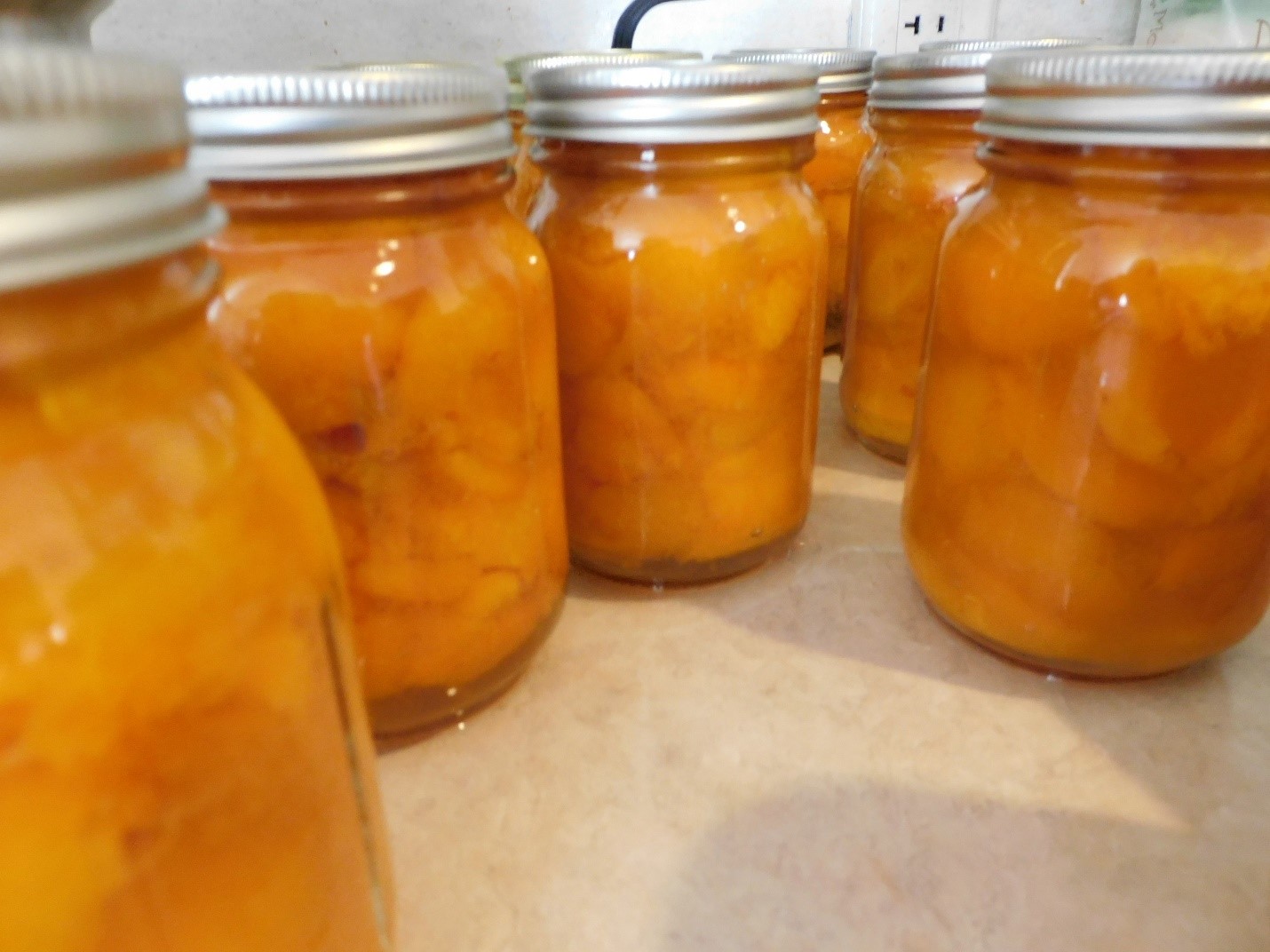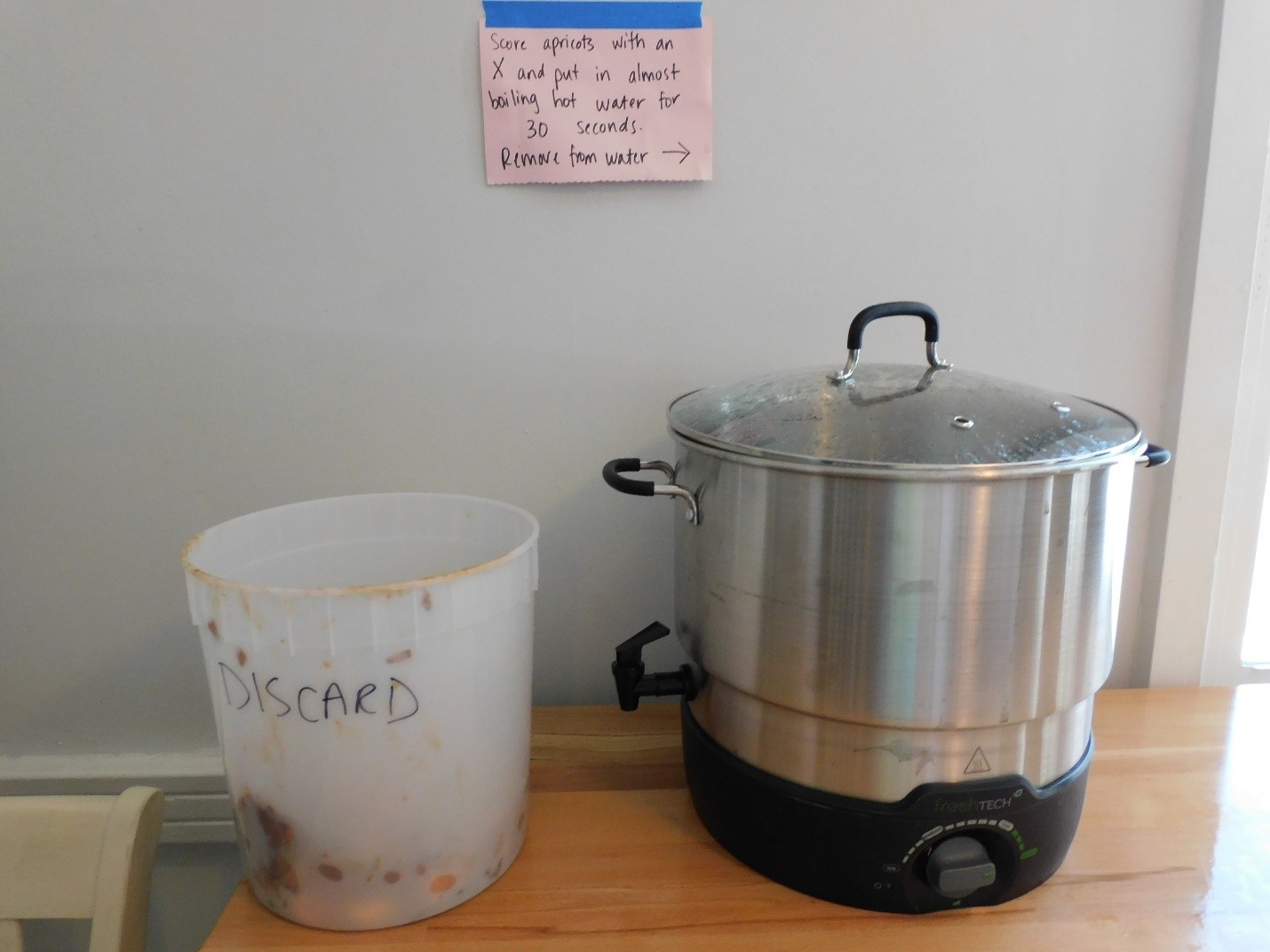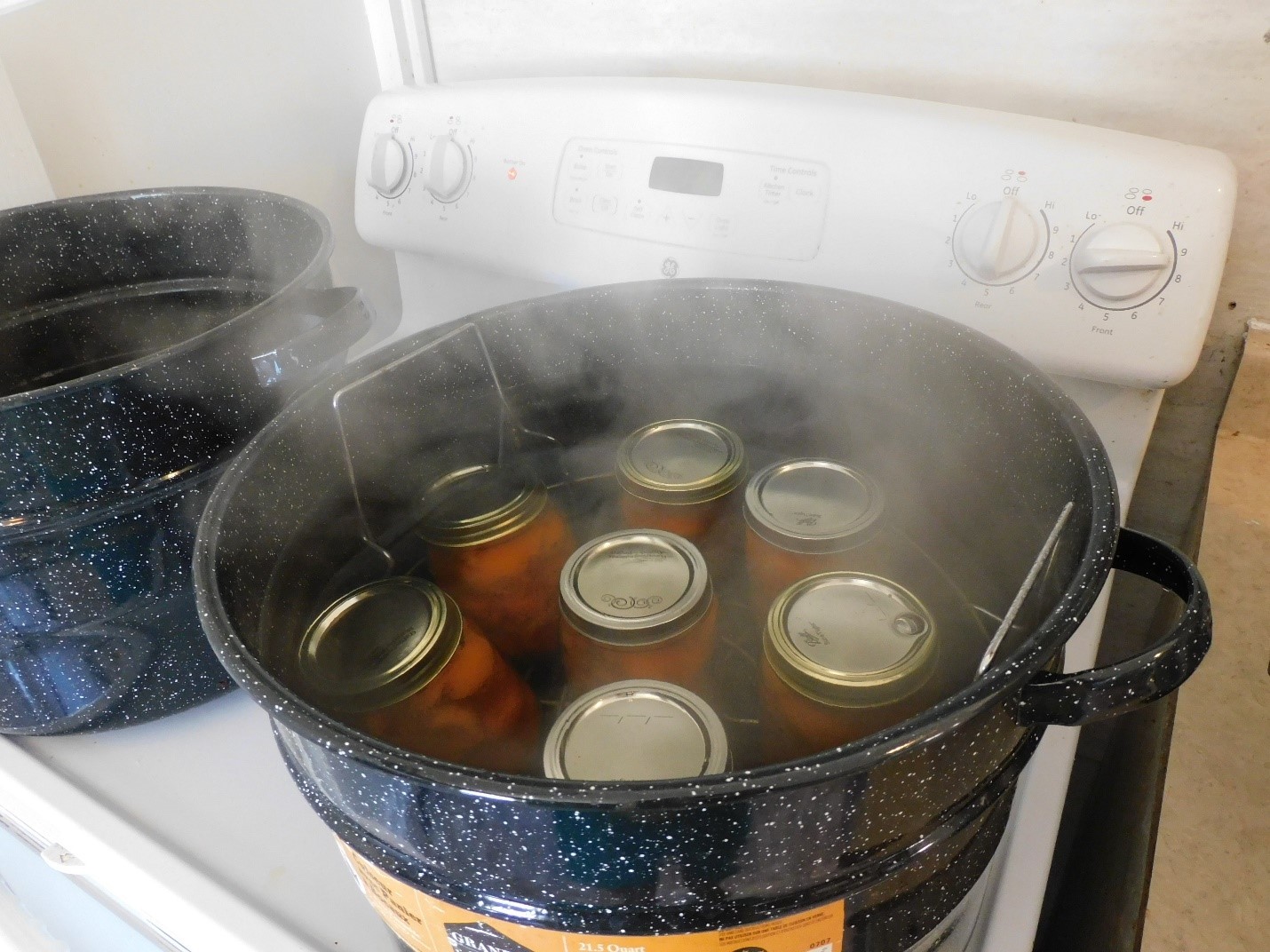by SLCgreen Intern Charles Bonkowsky

In the summer, the Salt Lake Valley is ripe with fruit. Through farmers’ markets or programs like the Green Urban Lunch Box, people all over the valley are able to enjoy it. But come winter, that fresh supply dries up.
Katie Lawson’s Salt Lake Canning Co. is working to fill that gap: in 2021 and 2022, the organization canned hundreds of jars of local fruit for distribution to senior citizens, and with the money received from Salt Lake City’s Food Equity Microgrant program, she hopes to do even more this year.
Lawson previously worked for the Green Urban Lunch Box (GULB)—a community-centered organization promoting access to fresh, healthy food—and noted how all the valley’s fruit was harvested in such a short window of time. GULB and former director and founder Shawn Peterson had done some canning already, renting out a commercial kitchen a few times a year; but it was an expensive and inefficient process to have to set up the equipment every time, and it meant volunteers were canning until two or three in the morning.
“So I had canned a little bit,” Lawson said, “and thought it was a great idea, and I wanted to add on to what Shawn had started and what I was learning on my own.”
But “at first, it was a long shot,” Lawson explained. She was renting an apartment, which had only a galley kitchen where it was a challenge just to cook a regular meal, much less set up a full canning process. Then, in 2021, she was able to get a house and the project became much more feasible.
“I’m in kind of a privileged position to be a homeowner,” she acknowledged, “and so whatever I can do to give some of that back to the community feels good.”
The Canning Co. is partnered with GULB for the fruit they receive. Through their existing Fruitshare program, homeowners with fruit trees can register their tree with GULB; volunteers will then come and harvest it and give some of the fresh fruit to people in need throughout the valley.
However, as with all fruit harvests, some of what GULB ends up with is overripe or bruised—perfect for canning.
GULB sets aside that fruit for Lawson to pick up, and then, once it’s canned, Lawson gives it back to GULB for distribution. So far, she said, they’ve been giving it to senior citizens through the Back-Farms program (a home-gardening program), but she hopes to can enough fruit this year that GULB can start distributing it through their other programs as well.
The canning sessions are all-volunteer: people come to Lawson’s house, with the canning equipment already set up in her kitchen, where they learn to can and then take fruit home with them afterwards.
On a recent July day, the Canning Co. was canning apricots which had just been harvested. First, the apricots were blanched, peeled, and the cores removed; they were taken to the stove and put in sanitized jars; once they were jarred, Lawson and her volunteers poured a simple syrup of sugar and water over them and then placed them in a hot water bath.


Photos from the apricot-canning session on July 22.
New equipment purchased with the SLC microgrant included a metal prep table and another electric canner, which made the process much smoother than in years past.
“The grant money from the city has been so incredibly helpful,” she said. “I can’t wait to can apples because we got these new machines that will peel and core and slice apples, and I’m really excited about it.”
Community support for the Canning Co. ultimately made it possible. In 2021, its first year of canning was supported by a Kickstarter that raised over $1,000. In 2022, GULB helped cover the cost of supplies and some new equipment. And, of course, it wouldn’t be possible without the volunteers. Initially, Lawson had thought that the volunteers would be homeowners who wanted to get their own kitchen certified for canning.
But instead, she said, “most of the people that come volunteer are renters, and they can’t do it in their own kitchen, but they still want to learn how and want to participate in the community aspect of it… to me, that’s been even cooler because I get to share this resource that I have with other people.”
What does the future look like for the Canning Co.? What Lawson’s really interested in is “ways of supplying local food in the winter months.” Canning fruit is one component of that, but she’s got another big goal in mind, too: a community root cellar for potatoes, onions, or other storage crops that would go along with her organization’s work. Ultimately, she said, “the goal is to increase local food in the winter months, so I’ll probably do whatever opportunities come up to contribute to that.”
You can sign up to volunteer with the Salt Lake Canning Co through the Green Urban Lunch Box.
